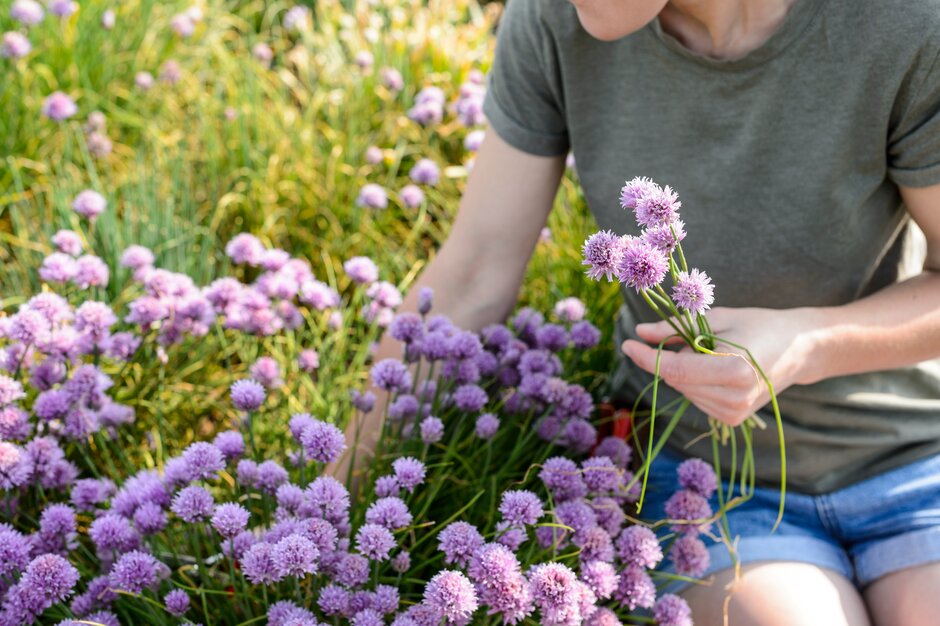Supporting military veterans through horticultural therapy
Discover how gardening is becoming a vital anchor for vulnerable veterans
Gardening has many therapeutic benefits and offers a supportive and nurturing environment to those struggling with the transition from a military to a civilian community.
Taking those all-important steps to close this gap are the Defence Gardens Scheme (DGS), a nationwide network of gardens providing nature-based therapy for armed forces service leavers, veterans and their families and Veterans’ Growth, a charity based in Hastings.
Fostering a sense of safety and security
“We are on the outside of the main visitor attraction at the Eden Project as a lot of people who come to us find crowds difficult. We’re not a walled garden but we’re surrounded by Cornish hedges and trees,” says Julia. “It is key when working with veterans or with people who might have mental health problems that the place is seen by them as a safe space.”
Supporting veteran’s mental health and wellbeing
Veterans’ Growth is a charity that offers horticultural therapy for military veterans. Sarah Wilson, CEO of Veterans’ Growth, set up the charity with her then-partner Jason Stevens in 2018. Sarah has a horticultural background, and Jason came from the military side of it.
“Gardening is particularly good for military veterans because it’s so adaptable. For some people being in a rural environment, putting their hands in the earth and connecting to nature is transformative; it’s so different from what they are used to.”
“We had somebody who worked for the police force. They were struggling and the course took them away from their day-to-day routine. To this day they say that they wouldn’t be here if it wasn’t for spending time with us. We have lots of stories like that; it’s a very rewarding thing we do.”
Channelling people to the right things
“If you don’t have a background in horticulture, that’s not a barrier. Start small, even if it’s a houseplant, and dip your toe into the water of caring for green things. Some people are interested in the woodland activities whereas others love
For those struggling with their mental health, Veterans’ Growth adjust their approach depending on how an individual may present on the day.
Reducing social isolation and loneliness
“For example, one person may cut the grass, and another does the edging. There’s a sense of community that comes from pulling together and achieving a tangible result. Groups of veterans form a team and problem-solve very quickly. Part of that is because of the training that they’ve had. In civilian life, people are quite individual and will say no if they don’t want to do something.”
Julia adds: “We start each session with a cuppa, followed by a mindfulness moment to bring people’s heads into the garden, and we bring the whole group together again at lunch time.
“For some, the thought of meeting new people and growing their community of friends isn’t safe, but we can gradually build up to the idea. If people have been isolated for a while, then that can be a useful thing.
“We have a quiet area with a pond and lots of raised beds. From there, you can see what the rest of the group is doing. If it takes people time to build up confidence to join the group, they can then see what’s going on and merge in a gentler way.”
Providing support for family members and carers
For Sarah it’s particularly important that Veterans’ Growth help family members and carers as well as veterans. “Jason was diagnosed with PTSD after he left the military. There wasn’t much support for him and, as his partner, I got even less.”
Education and training
The Defence Gardens Scheme has found that veterans’ biggest mental strain is a loss of identity on transition. “They’re moving from an institution into civilian life, and with that they also lose their social life,” says Sally.
“It’s destabilizing. Veterans lose their friends; their partners or spouses lose their social lives, and they often don’t settle in the first job that they get. And they move into an environment where people don’t understand military hierarchies and the value placed on them by those who serve. It can feel like all your hard work is suddenly devalued and it takes a while to get used to that.”
Julia agrees: “Our gardens offer people the time and space to think and reflect on their transition to civilian life and their next steps. We can help in their progression and to get the qualifications they need. Some people leave the Defence Gardens Scheme and study the RHS Level One Award in Practical Horticulture, but for us the most important thing is that people leave the course feeling positive about their future outside the military and have the confidence to begin taking steps towards a new career.”


